- About Us
- Cell Therapy
- Neurology
- Disorders
- Services
- All Therapies
- Regenerative Rehabilitation
- Rehabilitation for Stroke
- Rehabilitation for Spinocerebellar Ataxia
- Parkinson’s Disease Rehabilitation
- Multiple Sclerosis Rehabilitation
- Rehabilitation for Spinal Cord Injury
- Rehabilitation for Motor Neuron Disease
- Rehabilitation for Cerebral Palsy
- Brachial Plexus Injury rehabilitation
- Rehabilitation for Global Developmental Delay
- Childhood Disorders Clinic
- Outpatient Services
- Ask a question
- Request an appointment
- About Us
- Cell Therapy
- Neurology
- Disorders
- Services
- All Therapies
- Regenerative Rehabilitation
- Rehabilitation for Stroke
- Rehabilitation for Spinocerebellar Ataxia
- Parkinson’s Disease Rehabilitation
- Multiple Sclerosis Rehabilitation
- Rehabilitation for Spinal Cord Injury
- Rehabilitation for Motor Neuron Disease
- Rehabilitation for Cerebral Palsy
- Brachial Plexus Injury rehabilitation
- Rehabilitation for Global Developmental Delay
- Childhood Disorders Clinic
- Outpatient Services
- Ask a question
- Request an appointment
How to Bounce Back After Stroke
A stroke, also known as a cerebrovascular accident (CVA), occurs when the blood supply to the brain is interrupted, leading to brain cell damage or death.
At Plexus Hyderabad, we follow a multidisciplinary approach to treat post-stroke complications.
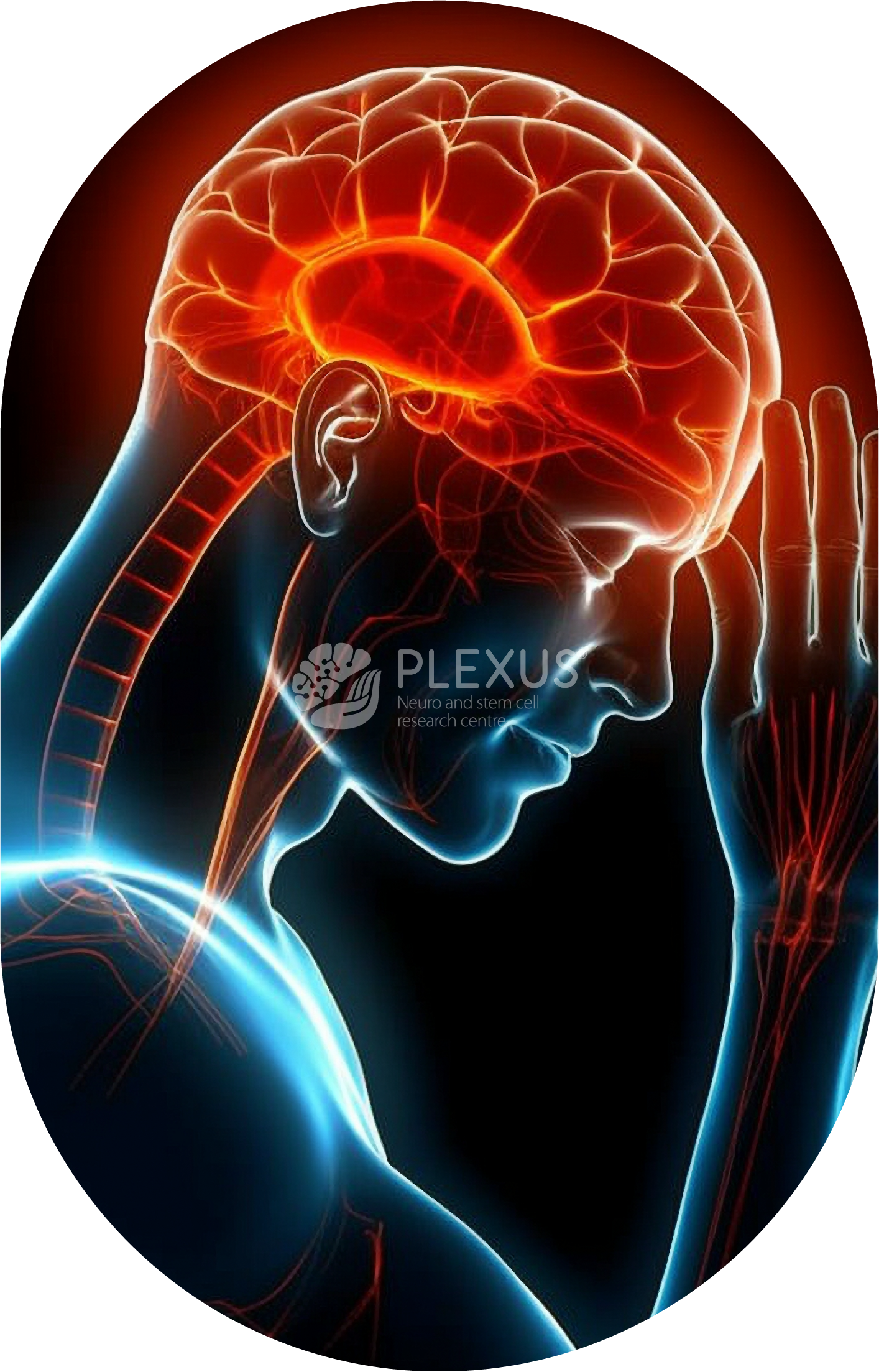
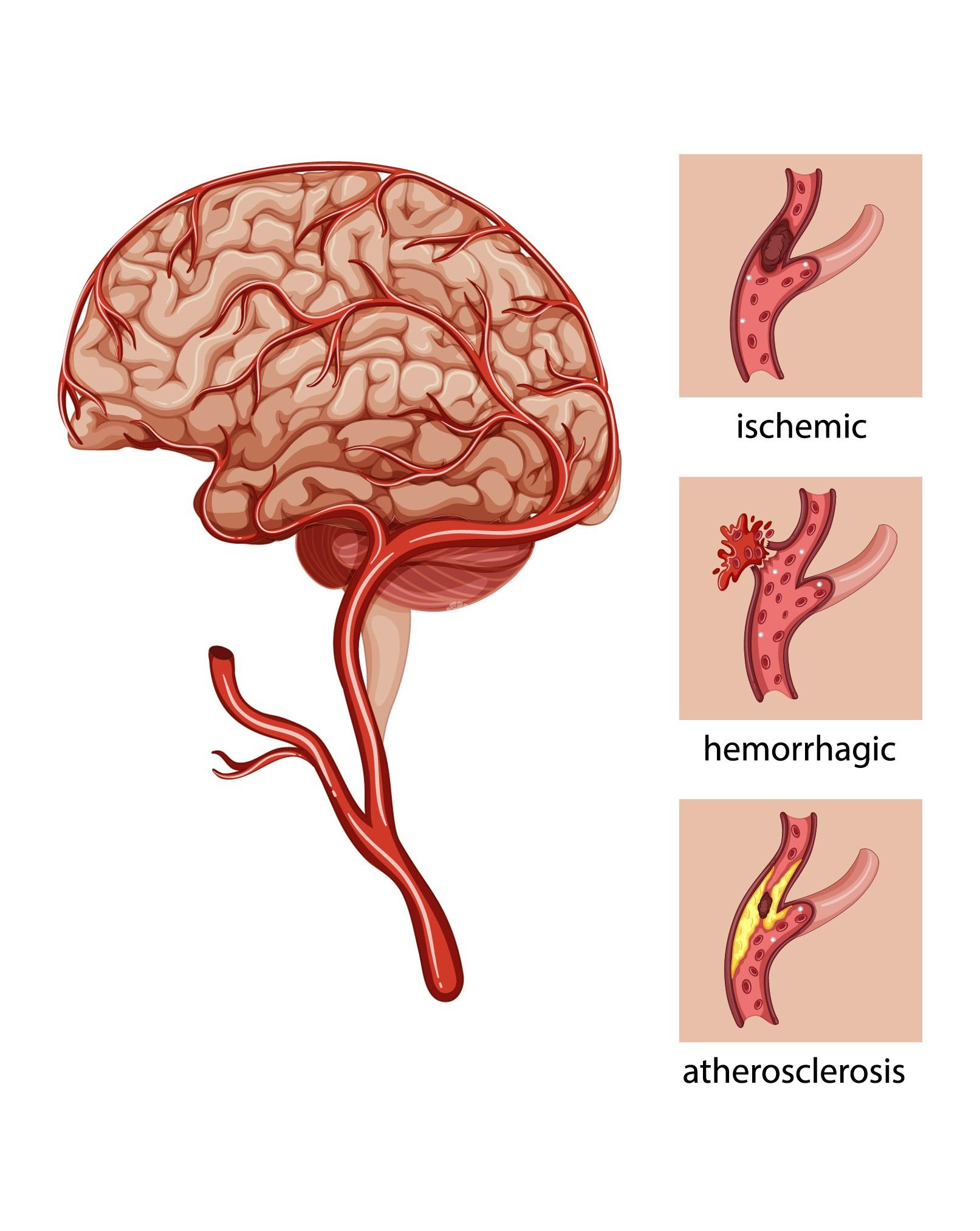
Types of strokes
Ischemic Stroke
It is the most common type of stroke, accounting for about 85% of all cases.
Cause: Occurs when a blood clot or plaque buildup narrows or blocks an artery supplying blood to the brain.
Hemorrhagic Stroke
Cause: Occurs when a blood vessel in the brain ruptures, leading to bleeding into the brain tissue. The bleeding can damage brain cells and increase pressure within the skull.
Transient Ischemic Attack (TIA)
It is often referred to as a mini-stroke.
Cause: Occurs when there is a temporary disruption of blood flow to the brain. TIAs do not cause permanent brain damage.
They serve as a warning sign that a more severe stroke may occur in the future.
Cryptogenic Stroke
It presents as a sudden onset of typical stroke symptoms, necessitating immediate medical attention.
Stroke Symptoms
The signs of a stroke can vary depending on the type of stroke (ischemic or hemorrhagic) and the specific area of the brain affected. Common stroke symptoms include:
Dysphagia
Nausea and vomitting
Speech challenges
Vision problems
Sudden numbness, weakness, or paralysis
Loss of balance and coordination
Sudden behavioural changes
Confusion or altered consciousness
Facial drooping
Severe headaches
Dizziness
Stroke Diagnosis
The following are key diagnostic approaches:
Physical Examination
Blood Tests
Lumbar Puncture
Carotid Ultrasound
Electrocardiogram (ECG)
Computed Tomography (CT) Scan
Magnetic Resonance Imaging (MRI)
Magnetic Resonance Angiography (MRA)
Computed Tomography Angiography (CTA)
Causes of Sensory Processing Disorder
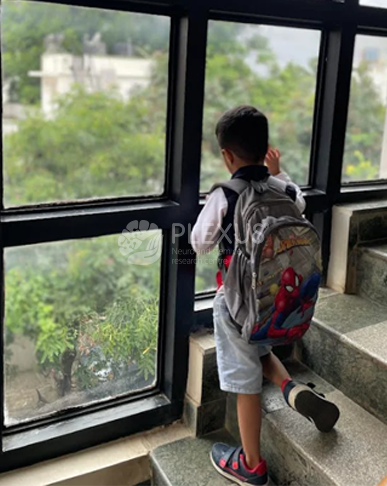
Best Stroke Rehabilitation in Hyderabad
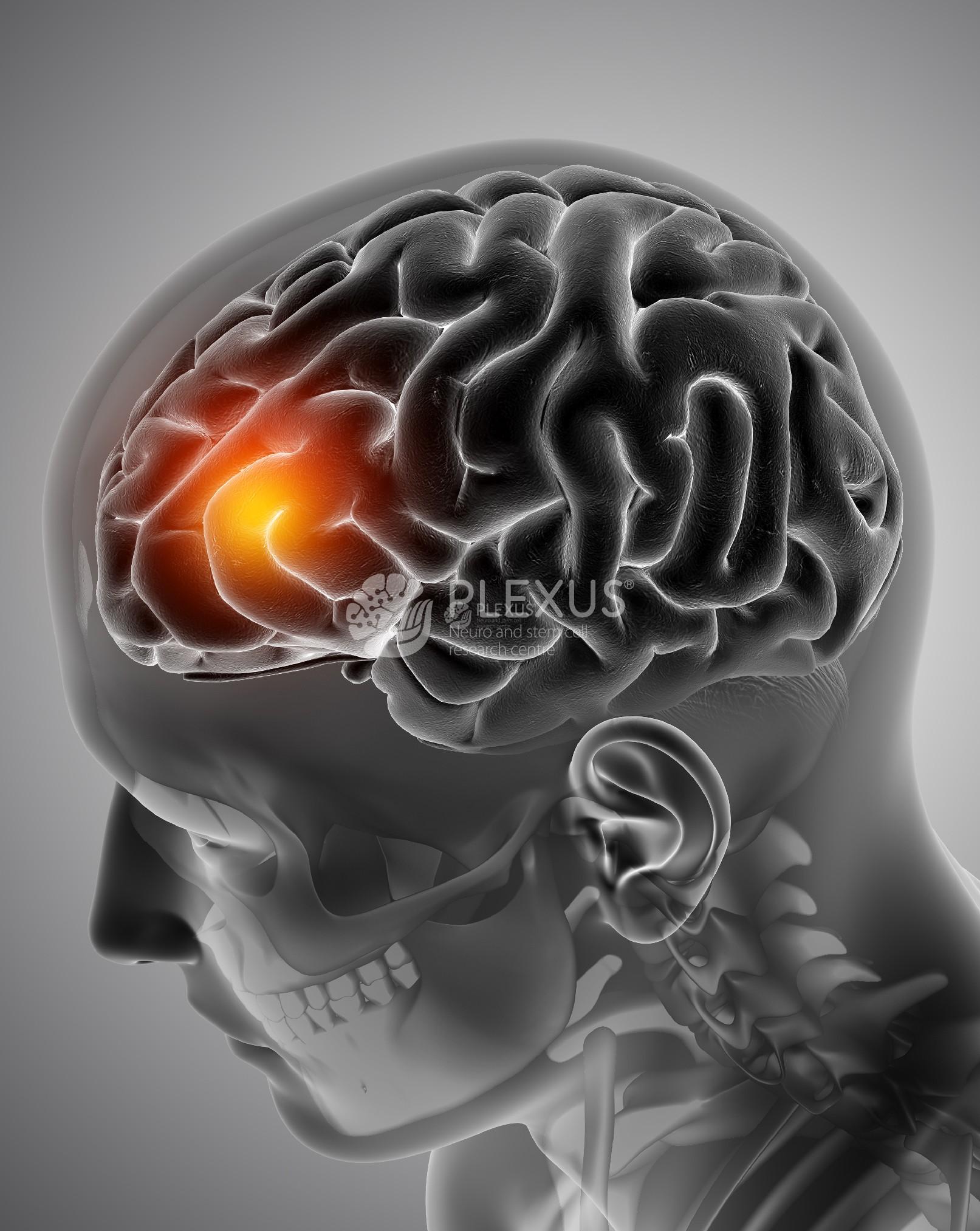
Stroke rehabilitation is a vital aspect of stroke care that helps individuals regain independence and improve their quality of life.
This includes:
Focuses on improving mobility, strength, and balance through:
- Range of motion exercises to prevent muscle contractures
- Strength training to improve muscle function
- Gait training to enhance walking ability
- Assistive devices such as walkers or wheelchairs to promote mobility
Assists in relearning daily living activities, such as dressing and cooking
Helps improve communication, language skills, and swallowing function
Addresses cognitive impairments that may arise from stroke, such as memory problems, attention deficits, and executive function challenges
Emotional support
Helps cope with the physical and cognitive changes following a stroke that can be emotionally challenging
Cell Therapy For Stroke in Hyderabad
At Plexus Hyderabad, we offer customized regenerative rehabilitation for stroke. This involves injecting autologous mesenchymal cells (sourced from the patient’s body) into distant arteries or veins. These cells then travel to the site of the stroke in the brain and begin the process of repair and regeneration of tissue function.
Visit Plexus Hyderabad today!
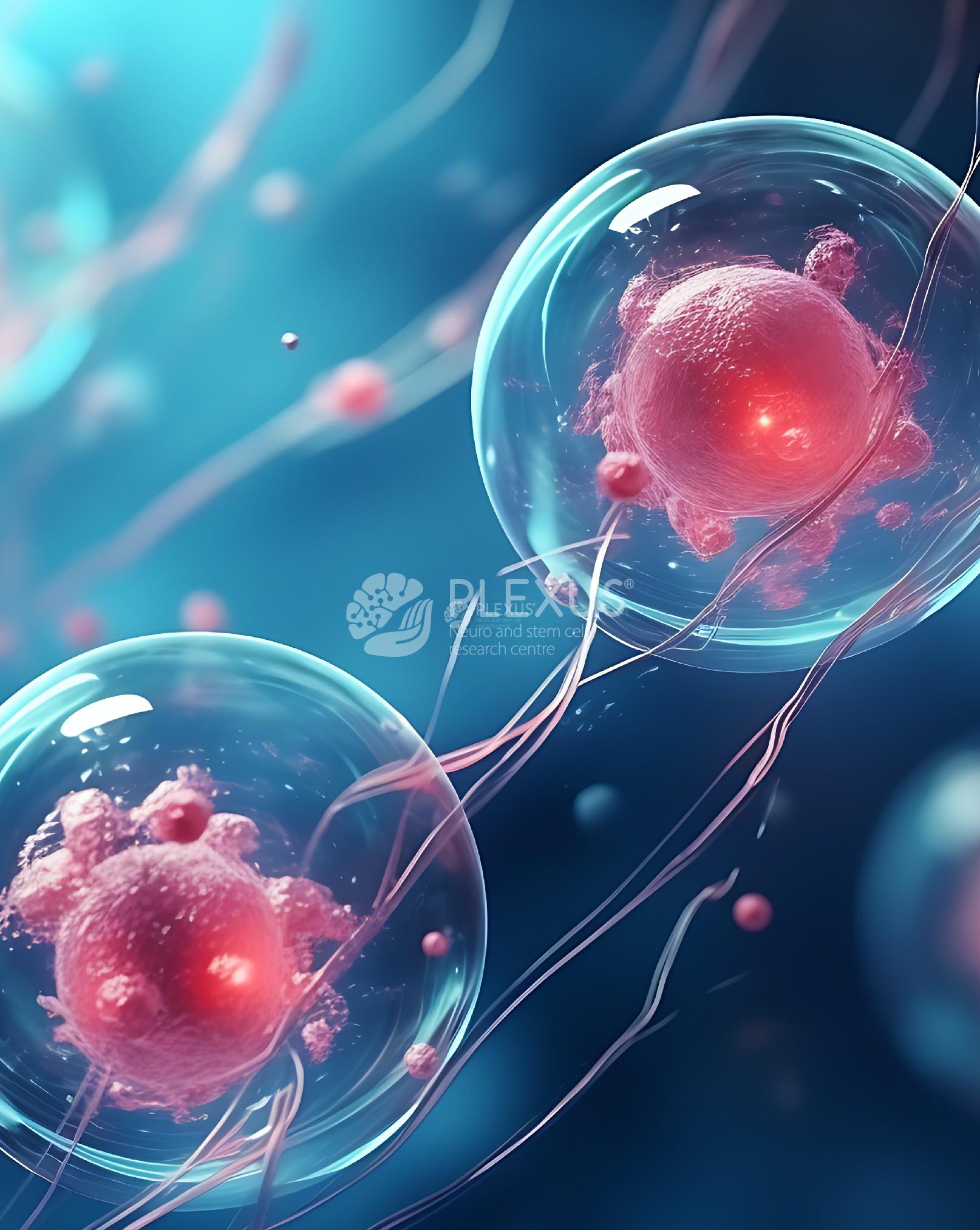
Our treatment program at Plexus
We are one of the leading Sensory Processing Disorder treatment centers in the country. Under the guided supervision of Dr Na’eem Sadiq, our team of occupational therapists provides Sensory Integration Therapy to treat neurological conditions like Cerebral Palsy in children.
After a thorough evaluation, we determine how the therapy will benefit your child’s condition. Our therapists plan a sensory diet exclusively for your little ones and record their improvements on a weekly basis.
- Anticipating action and outcome
- Correctly interpreting sensory input
- Creating physical equilibrium and a sense of space
- Developing positive behavior patterns
- Eliminating fear
- Encouraging play and socialization
- Lessening sensory defensiveness
- Minimizing input intolerance
- Reducing negative physical reactions
Anticipating action and outcome
Correctly interpreting sensory input
Creating physical equilibrium and a sense of space
Developing positive behavior patterns
Eliminating fear
Encouraging play and socialization
Lessening sensory defensiveness
Minimizing input intolerance
Reducing negative physical reactions
What our patients say

Ramanujan (name changed)
“I believe that Dr Na’eem Sadiq is an amazing doctor with a friendly, warm attitude. His care towards his patients is commendable and he is a great listener. He explains to his patients and their family in the most simple terms about the root cause of problems and provides a comprehensive treatment for them. We came to India from the US to get Cell Therapy for our son with Autism.
We sincerely thank Dr Na’eem Sadiq and his staff. It was a wonderful journey with you. Keep up the good work! I will recommend Plexus to all my family and friends.”

Priyanka Reddy (Name changed)
“My experience with Plexus has been pleasant. Dr Na’eem and his staff members have been helpful and they treated my son who was suffering Sensory Processing Disorder wholeheartedly. I am glad I found this center as it helped my son recover as soon as possible.”

Shakuntala (name changed)
“My husband has been suffering from a stroke for some time now due to which his hand and leg on one side wasn't working properly. After getting a thorough consultation and regular treatment from Dr Na’eem Sadiq at Plexus, he is completely cured. I thank God and Dr Na’eem for this miracle.”
Amir Shaikh (name changed)
“Dr Naeem and his staff, especially the therapists at Plexus, very knowledgeable and experienced. They provided comprehensive treatment to my mother who was suffering from Stroke. Now she can walk again, all thanks to them."











